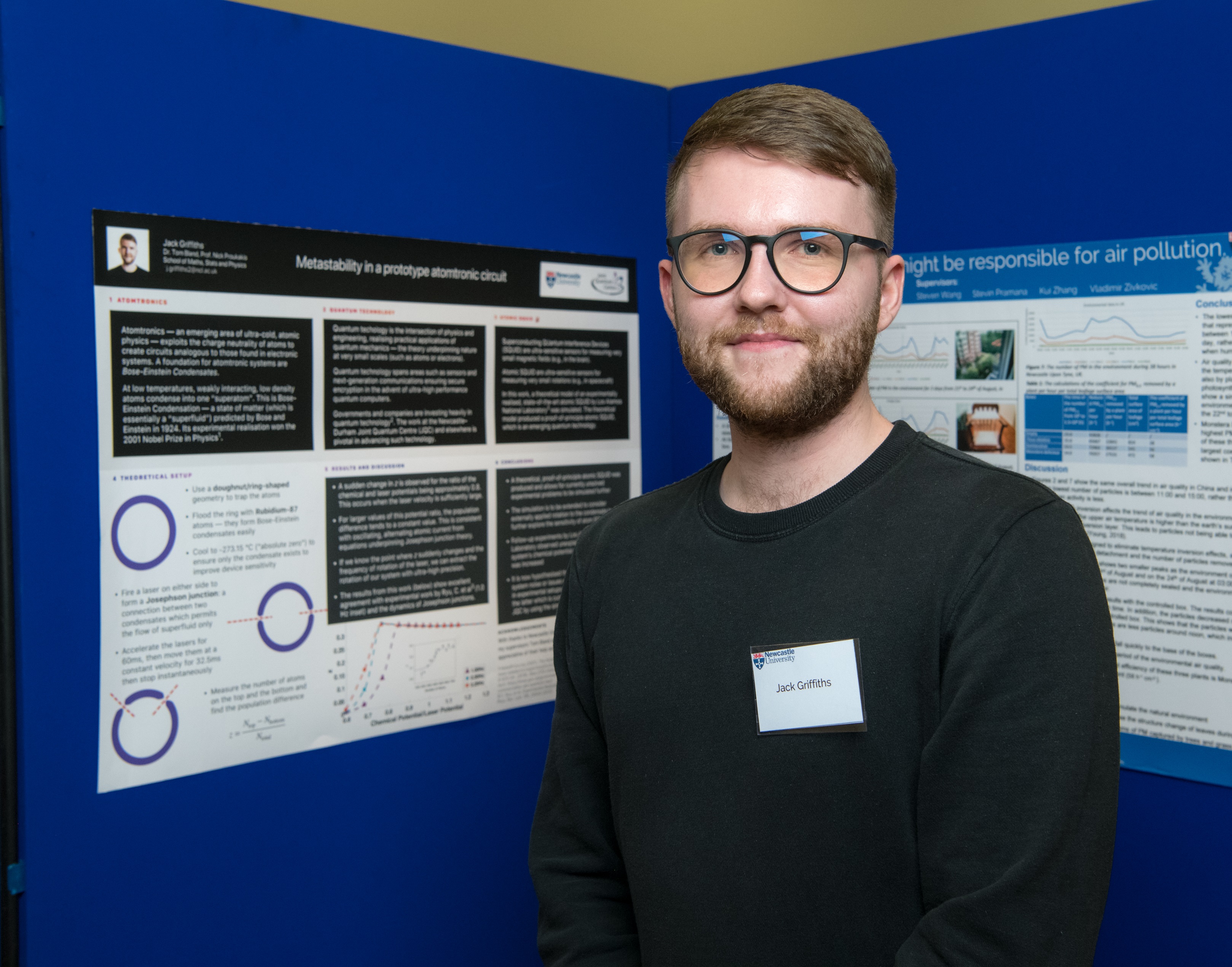2019 participants
 Jack Griffiths
Jack Griffiths
Quantum technology is an area of intense interest for companies and governments as they aim to invest in our future communications, computing and sensing technology. The proposed technology is far more advanced than we currently use today.
Atomtronics — an emerging area of ultra-cold, atomic physics — exploits the charge neutrality of atoms to create circuits analogous to those found in electronic systems. Some atomtronic devices exploit the Bose-Einstein condensate (BEC) – a state of matter of ultra-cold, atomic gases – as their basis. The area is of theoretical and experimental interest: the BEC was the subject of the 1997 and 2001 Nobel Prize in physics.
In this work, a theoretical model of an experimentally realised, state-of-the-art quantum sensor by Los Alamos National Laboratory was simulated. The theoretical model successfully produced results which corroborated with the experiment. This model, fundamentally, provides a proof of principle atomtronic sensing device — the "atomic SQUID".
Funding source: Newcastle University
Project supervisor:Professor Nick Proukakis and Dr Tom Bland
